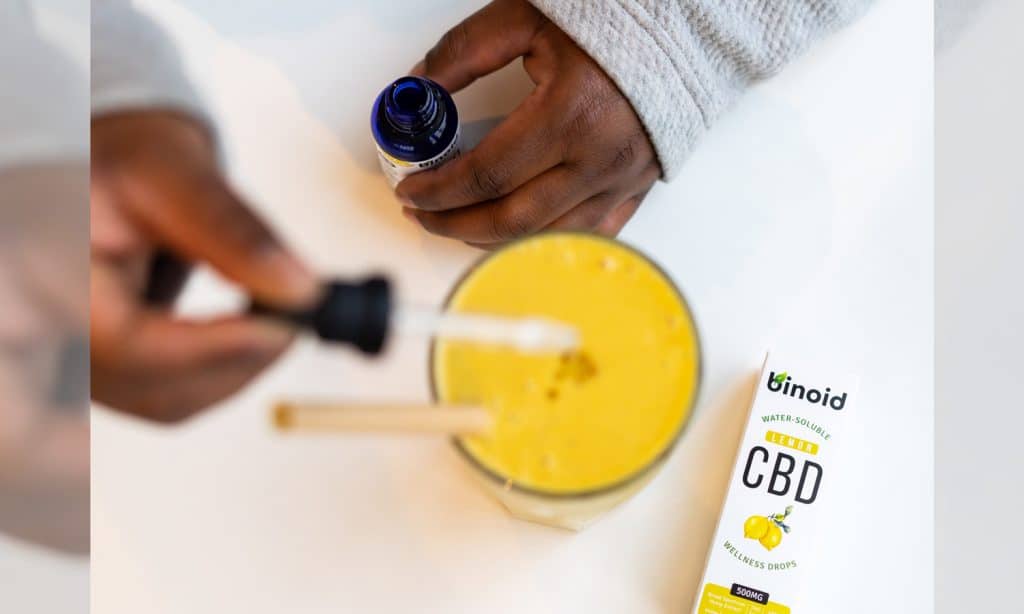You are here
Home 🌿 Cannabis Technology News 🌿 54% Of CBD Beverages Contain Less CBD Than Advertised 🌿54% Of CBD Beverages Contain Less CBD Than Advertised

According to Leafreport, only 4 out of 22 products tested actually contained the levels of CBD that were advertised.
CBD marketplace and brand reviewer, Leafreport, conducted independent lab testing on 22 CBD beverage brands to determine just how much CBD is actually in these products. Their findings were shocking, and showed many of these brands to be entirely misrepresenting their true CBD content, whether intentional or not. Some brands contain far less CBD than advertised, while some actually contain more CBD. The company ordered 22 COAs form these companies in order to accurately compare their findings.
Out of the 22 products that Leafreport tested, 54% (12 products) tested out at less CBD than the brand advertised, while two of the CBD beverage products contained no CBD at all! Additionally, the report reads that 81% of beverages (or 18 products) actually had CBD levels that were 10% higher or lower than advertised, while 14 products, or 64% of all the products tested, contained CBD levels that were 40% higher or lower than advertised.
This means that only 18%, or 4 products, tested actually contained the levels of CBD that were advertised. 64% of the total products tested by Leafreport were graded as an F and placed in the fail category. Only the 4 products that actually contained the marketed levels of CBD were graded as an A. Among the A rated products are Wyld’s Blood Orange beverage, Savage CBD Revive shot, and Dram Beauty Bubbles. Products like Refresh CBD Water, Sunday Scaries YOLO, Sweet Reason Sparkling Water, Oki Cucumber Mint, and more all received a failing score, or an F.
Looking at Wyld’s Blood Orange, Leafreport reported that they only had a variance of 5.67%. The brand advertises the drink to have 25 milligrams of CBD and they tested out with Leafreport at 26.42%. This is not a huge variance and usually deemed as acceptable by most. Oki’s Cucumber Mint water is advertised as having 20 milligrams of CBD. According to Leafreport’s findings, it only contains about 6.3 milligrams.
This is a staggering 68% variance. Blue Label Naturals CBD Water claims to contain 5 milligrams of CBD, but the tests show that their products contain no CBD at all. The same goes for Sativa CBD Water, who markets a CBD content of 25 milligrams, but Leafreport found no traceable CBD in their beverage.

Photo by Binoid CBD via Pexels
Leafreport said that unlike the first report they conducted, they did not see a positive association with the company’s overall reputation and their test results. This means that leading CBD brands were not more likely to score well on their test results compared to lesser-known brands. Leafreport’s research signals a huge problem in the CBD beverage industry.
“This is in line with our expectations because CBD beverages are difficult to formulate and contain relatively small amounts of CBD, which means that variations of even a few milligrams can have a big effect,” said Lital Shafir, head of product at Leafreport.
Another study conducted by Leafreport highlighted inaccuracies in CBD tinctures. This study showed that some CBD oil brands sell products that contain much less or more CBD than advertised. Cannabis industry experts claim that plus or minus 10% CBD is a reasonable amount of variance for cannabis products. This means that a high-quality CBD product is expected to have CBD levels that are within 90-110% of what is stated on the label.
Leafreport’s goal is to bring transparency to the emerging cannabis industry. “The CBD industry is completely unregulated and there have been many cases of companies selling products that contain little to no CBD. That’s why third-party testing is important for brands in this industry,” added Shafir.
420 Intel is Your Source for Marijuana News
420 Intel Canada is your leading news source for the Canadian cannabis industry. Get the latest updates on Canadian cannabis stocks and developments on how Canada continues to be a major player in the worldwide recreational and medical cannabis industry.
420 Intel Canada is the Canadian Industry news outlet that will keep you updated on how these Canadian developments in recreational and medical marijuana will impact the country and the world. Our commitment is to bring you the most important cannabis news stories from across Canada every day of the week.
Marijuana industry news is a constant endeavor with new developments each day. For marijuana news across the True North, 420 Intel Canada promises to bring you quality, Canadian, cannabis industry news.
You can get 420 Intel news delivered directly to your inbox by signing up for our daily marijuana news, ensuring you’re always kept up to date on the ever-changing cannabis industry. To stay even better informed about marijuana legalization news follow us on Twitter, Facebook and LinkedIn.




